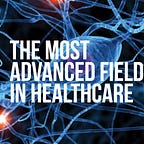Promising Diabetes Study, Remote Neuromodulation, and “Mini-Brains”
AABM News Roundup: March 2021
Lead Stories: March 2021
Researchers from the Feinstein Institutes and GE have discovered a potential non-pharmacological treatment for diabetes and obesity: ultrasound stimulation of the liver. Studies on mice are promising, as explained by one of the authors of the study, Sangeeta Chavan:
“We have extensive data to show that when you do liver stimulation you improve the glucose levels in these animals, and you improve the response to insulin. That is very important in the disease scenario in the patient population because if you can delay the onset of insulin resistance you can delay the onset of type 2 diabetes in these individuals.”
While the method still needs to be tested in humans, the research has already generated widespread coverage. Originally published in Scientific Reports on March 3rd, it has also been covered in the Times Union, Futurism, and New Atlas.
Abbott is taking full advantage of the recent boom in virtual medicine through its NeuroSphere Virtual Clinic, which enables virtual visits to adjust neuromodulation settings. As reported in MedTech Dive in early March:
“With COVID-19 limiting face-to-face interactions, the virtual clinic could allow patients with chronic pain or movement disorders to meet with their physicians and get treatment settings updated remotely. Abbott sees a role for the clinic in mitigating geographic barriers after the pandemic.”
One example of those geographic barriers includes the long distances that patients often have to travel in order for their Deep Brain Stimulation (DBS) systems to be programmed. Read more about this in a MedCity News article from March 8th.
Scientists have found a way to create “mini-brains” that have the potential to dramatically expand our knowledge about the organ. The research, led by scientists from Northwestern University, Shirley Ryan AbilityLab and the University of Illinois at Chicago, combines sophisticated 3D bioelectronic systems with advanced 3D human neural cultures. Co-lead author Dr. Colin Franz described the exciting implications in SciTech Daily on March 20th:
“The advances spurred by this research will offer a new frontier in the way we study and understand the brain…Now that the 3-D platform has been developed and validated, we will be able to perform more targeted studies on our patients recovering from neurological injury or battling a neurodegenerative disease.”
The study made the cover of the March 17th issue of Science Advances.
More Bioelectronic Medicine Headlines from March:
Industry News
Electroceuticals, the bioelectronic medicine of the future, ZME Science, March 5, 2021
- The daily science publication ZME Science featured an article describing the future of bioelectronic medicine, referencing the “seminal study” by GSK as well as a 2019 report by McKinsey that predicted the bioelectronic market will “represent a multi-billion-dollar opportunity in the near future even with ‘modest penetration.’”
How tiny bioelectronic implants may someday replace pharmaceutical drugs, Big Think, February 24, 2021
- An article sponsored by Northwell outlines the science of vagus nerve stimulation and the advantages of bioelectronic medicine over pharmaceutical drugs.
- Dr. Kevin Tracey is quoted explaining the absence of side effects — “It’s a powerful concept that, frankly, scientists are quite accepting of…but the idea of adopting this into practice is going to take another 10 or 20 years, because it’s hard for physicians, who’ve spent their lives writing prescriptions for pills or injections, that a computer chip can replace the drug.”
Corporate News
electroCore Inc. Announces Exclusive Distribution Agreement with Medistar Following Regulatory Approval in Australia, press release, February 28, 2021
- Following the granting of regulatory approval from the Australian Therapeutic Goods Administration (TGA), electroCore, Inc. will promote and distribute the gammaCore Sapphire family of products with Medistar as the exclusive distributor.
The Future of Medicine is Here: Bioelectronic Medicine, Yahoo! Finance, March 5, 2021
- A Benzinga columnist profiled BioSig Technologies and its PURE EP product and described the exciting future potential of the field of bioelectronic medicine.
FDA Clears Neuromodulation Device for Acute Migraine Pain, Medscape, March 2, 2021
- The Relivion system from Neurolief is the first noninvasive multichannel brain neuromodulation system approved by the U.S. FDA to treat acute migraine pain.
- Steward J. Tepper, MD and principal investigator of the clinical trial stated, “patients will now have access to a highly effective, easy-to-use, non-invasive and drug free therapeutic option that will help them regain control of their lives.”
Could Bioelectronic Medicine Play a Role in Treating COVID-19 Symptoms?, MD+DI, February 24, 2021
- “electroCore is supporting a clinical study to evaluate the effect of non-invasive electrical vagus nerve stimulation on respiratory symptoms that occur because of COVID-19.”
- The company is emphasizing the importance of addressing symptoms such as breathing difficulties along with ongoing prevention and vaccination efforts.
